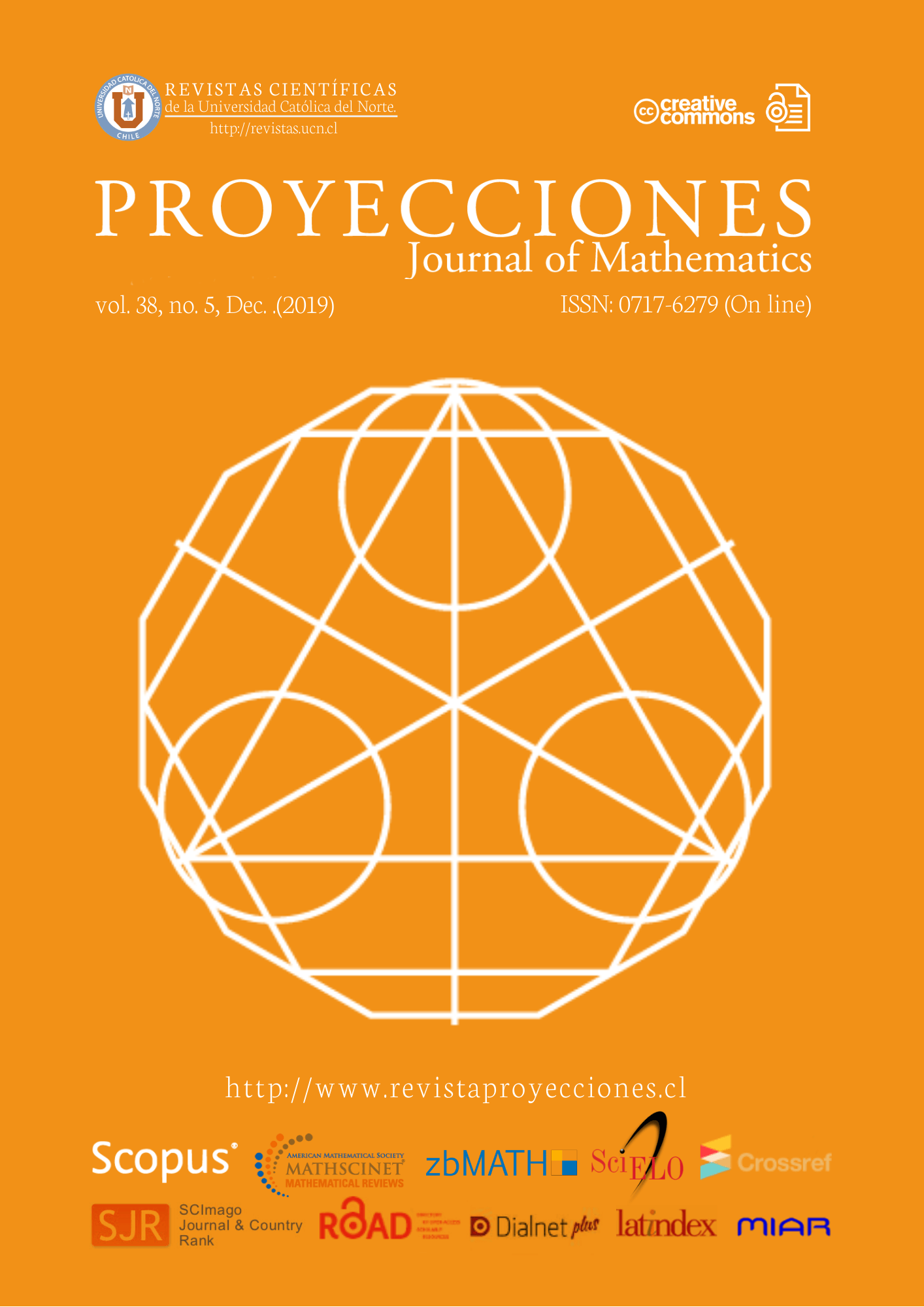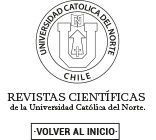Nonlocal quantum stochastic differential equations with impulsive effects
DOI:
https://doi.org/10.22199/issn.0717-6279-2019-05-0068Keywords:
Quantum stochastic processes, Impulse effects, Fixed pointsAbstract
The aim of this work is to establish further existence of solution results for quantum stochastic differential equations with unbounded coefficients, which are also stochastic processes. Existence of solutions for nonlocal quantum stochastic differential equations with impulsive effects is established. The nonlocal condition extends the traditional initial value condition and cases of Lipschitz and non-Lipschitz continuous conditions were established. The quantum stochastic differential equation considered are driven by noises on Boson Fock spaces and measure of non compactness was employed to prove the main result.
References
A. Anguraj and M, Arjunan, “Existence and uniqueness of mild and classical solutions of impulsive evolution equations”, Electronic journal of differential equations, vol. 2005, Art ID. 111, 2005. [On line]. Available: https://bit.ly/2PxpDJJ
M. Arjunan, V. Kavitha and S. Selvi, “Existence results for impusive differential equations with nonlocal conditions via measures of noncompactness”, Journal nonlinear sciences applications, vol. 5, no. 3, pp. 195-205, 2012, doi: 10.22436/jnsa.005.03.04.
J. Banas and K. Goebel, Measures of noncompactness in Banach spaces. New York, NY: Marcel Dekker, 1980.
M. Benchohra, J. Henderson, and S. Ntouyas, Impulsive differential equations and inclusions, vol. 2. New York, NY: Hindawi Publishing Corporation, 2006.
A. Boukas, “An application of fixed point theory to quantum SD”, in Quantum probability and related topics, vol. 7, L. Accardi , Ed. World Scientific Publishing , 1993, pp. 95–97, doi: 10.1142/9789812812810_0008.
L. Byszewski and V. Lakshmikantham, “Theorem about the existence and uniqueness of a solution of a nonlocal abstract cauchy problem in a banach space”, Applicable analysis. An international journal, vol. 40, no. 1, pp. 11-19, 1991, doi: 10.1080/00036819008839989.
K. Deimling, Multivalued differential equations. Berlin: Walter de Gruyter, 1992.
G. Ekhaguere, “Topological solutions of noncommutative stochastic differential equations”, Journal stochastic analysis and applications, vol. 25, no. 5, pp. 961-993, Aug. 2007, doi: 10.1080/07362990701540345.
F. Fagnola, “On quantum stochastic differential equations with unbounded coefficients”, Probability theory and related fields, vol. 86, no. 4, pp. 501-516, Dec. 1990, doi: 10.1007/BF01198172.
F. Fagnola and S. Wills, “Solving quantum stochastic differential equations with unbounded coefficients”, Journal of functional analysis, vol. 198, no. 2, pp. 279- 310, Mar. 2003, doi: 10.1016/S0022-1236(02)00089-7.
Z. Fan, “Impulsive problems for semilinear differential equations with nonlocal conditions”, Nonlinear analysis: theory, methods & applications, vol. 72, no. 2, pp. 1104-1109, Jan. 2010, doi: 10.1016/j.na.2009.07.049.
R. Hudson and K. Parthasarathy, “Quantum Ito’s formula and stochastic evolutions”, Communications in mathematical physics, vol. 93, no. 3, pp. 301-323, Sep. 1984, doi: 10.1007/BF01258530.
M. Ogundiran and V. Payne, “On the existence of solutions of impulsive quantum stochastic differential equations”, Journal of differential equations and control processes, vol. 2013, no. 2, pp. 62-73, 2013. [On line]. Available: https://bit.ly/34zi2OO
M. Ogundiran, “Controllability of quantum stochastic differential inclusions”, Journal of nigerian mathematical society, vol. 35, no. 2, pp. 369-380, 2016. [On line]. Available: https://bit.ly/2MkYdVt
K. Parthasarathy, An introduction to quantum stochastic calculus. Basel: Birkhäuser, 1992.
X. Xue, “Existence of semilinear differential equations with nonlocal initial conditions”, Acta mathematica sinica, english series, vol. 23, no. 6, pp. 983-988, Sep. 2007, doi: 10.1007/s10114-005-0839-3.
Published
How to Cite
Issue
Section
-
Attribution — You must give appropriate credit, provide a link to the license, and indicate if changes were made. You may do so in any reasonable manner, but not in any way that suggests the licensor endorses you or your use.
- No additional restrictions — You may not apply legal terms or technological measures that legally restrict others from doing anything the license permits.












